If care is taken to make sure that host communities benefit in the short and long term from the energy projects in their backyards, they will be less inclined to oppose them, leading to faster timelines for clean energy and transmission projects.
Nevertheless, these Big Green blowhards are courting Congress to pass more legislation greasing new transmission, wind and solar projects. And they're pretending they speak for impacted landowners. Their bold new plan has been issued as another tedious "report".
The report says the craziest stuff, like:
Community opposition to large-scale wind and solar projects is growing across the United States. There are many reasons for this trend, including misinformation about renewable energy, concerns about project impacts, and concern that most of the benefits flow outside of the community while the burdens fall within. Communities often see hosting renewable energy projects and transmission (which touches multiple communities) as an impediment to their goals, such as preserving community identity, land preservation, and in some cases ensuring ecosystem conservation. While some landowners see these projects as a potential source of revenue from leases, others worry that the projects will reduce the value of their land. Finally, in many communities, while there may be both supporters and opponents of clean energy projects, the opponents are often more vocal, better resourced, and more passionate than the supporters. Because of all these factors, an alarming number of communities are adopting restrictive zoning and land use ordinances that effectively ban the siting of clean energy projects.
This rise in opposition highlights the importance of ensuring that developers and local officials disseminate accurate information about potential projects and that the permitting process allows engagement from a broad range of voices so that decision-makers can accurately assess the environmental impacts as well as benefits of projects. Furthermore, it is important to ensure that host communities share in the benefits of projects in their own backyards.
We're NOT better resourced than deep-pocketed developers. We're just speaking the truth. Truth still matters in rural communities.
Several states, including New York, California, Illinois, and Washington, have enacted laws that improve the siting process for large-scale renewable projects and provide potentially powerful models for similar legislation in other states. Among other things, these laws modernize the permitting process and explicitly provide benefits to host communities via mechanisms like utility bill discounts. States should be encouraged to adopt model siting and permitting laws that expand community engagement while limiting the ability of localities to unreasonably ban all wind and solar projects.
But the best part of this idiotic paragraph is the statement that we can EXPAND community engagement while LIMITING the actions the communities can take. That's not engaging the communities... it's oppression.
Bringing communities from opposition to support—or at least to open-mindedness—is a major challenge to renewable energy growth that needs sustained effort, engagement, and thought. Our recommendations provide a starting point.
Coalitions should work together to build support for well-sited projects that benefit the host community. In cases where developers have done their due diligence as outlined in the preceding recommendations, environmental and conservation groups, labor groups, local landowners and businesses, and other stakeholders—including, where relevant, environmental justice and tribal groups—should form coalitions and work together to support the project. A key part of this support should be highlighting the community benefit agreements, payments in lieu of taxes or other mechanisms for benefit sharing, the creation of local jobs, and addressing other ways to compensate local landowners for any perceived or actual diminution in property values.
This new report is complete garbage. However it has now been made crystal clear exactly which idiots are writing all the new clean energy legislation. It's not your elected representatives. It's private interests.
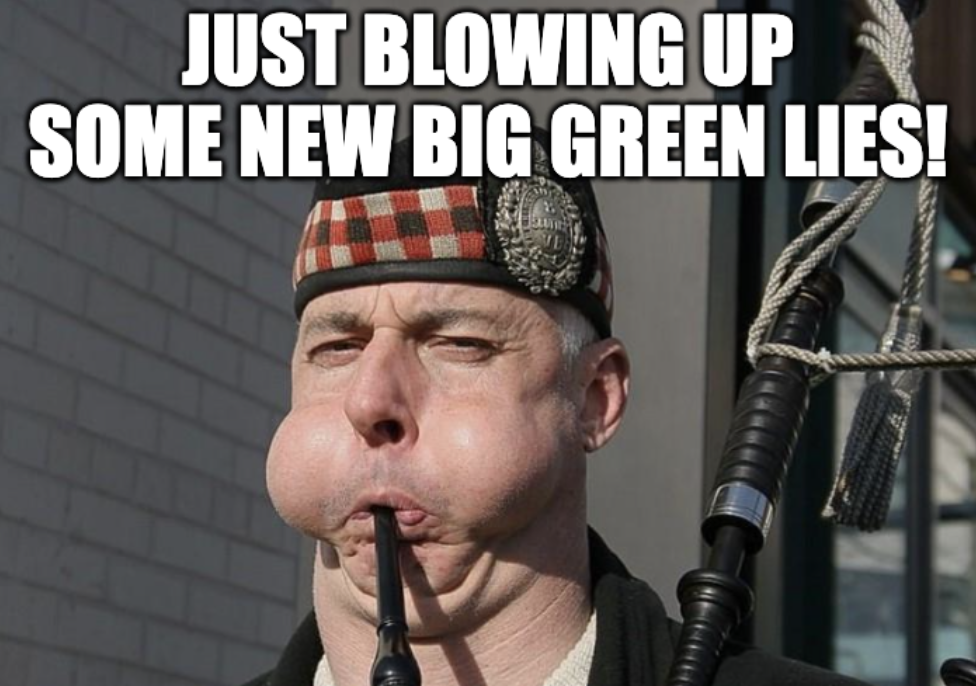
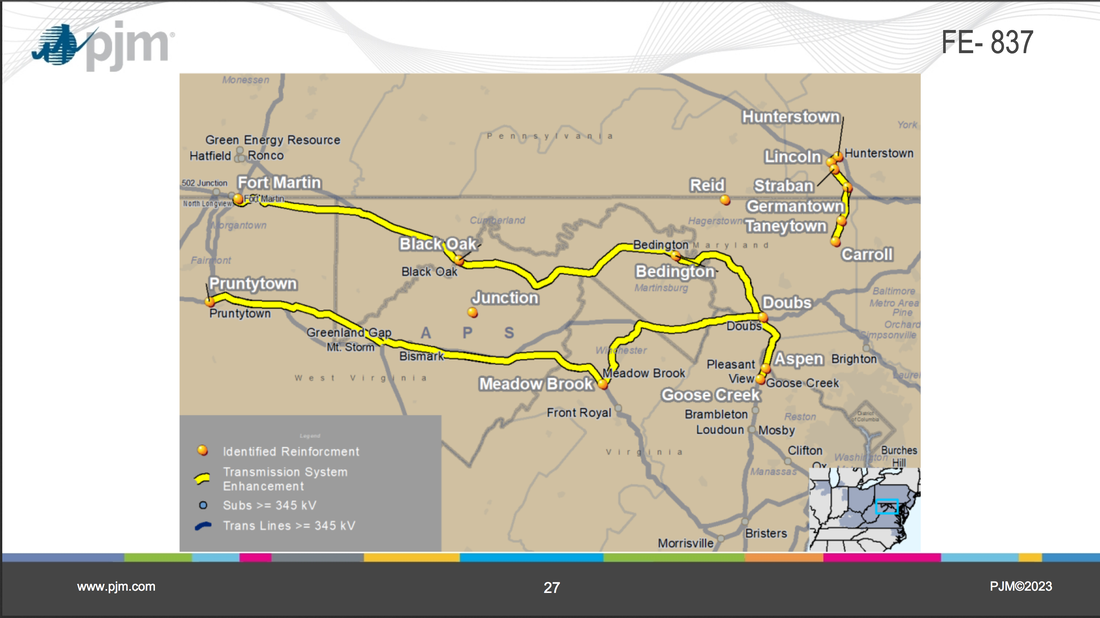
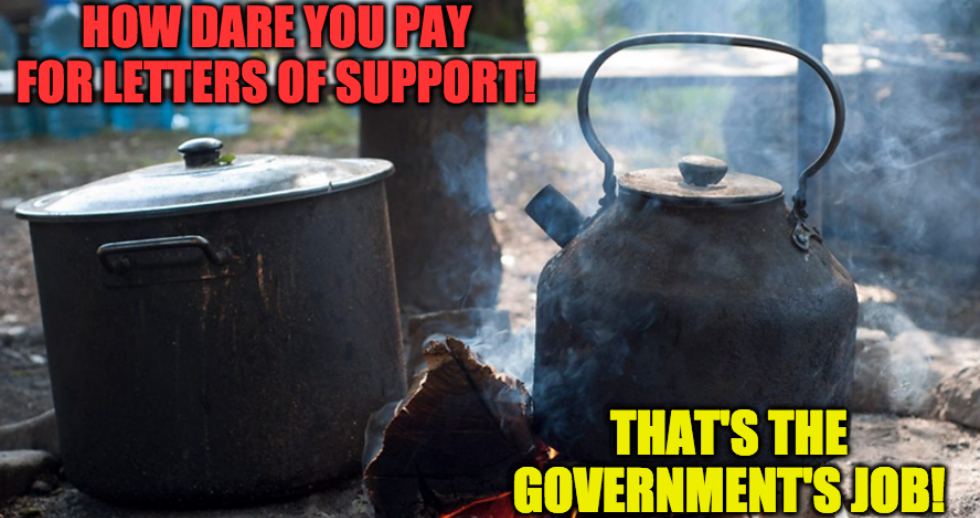
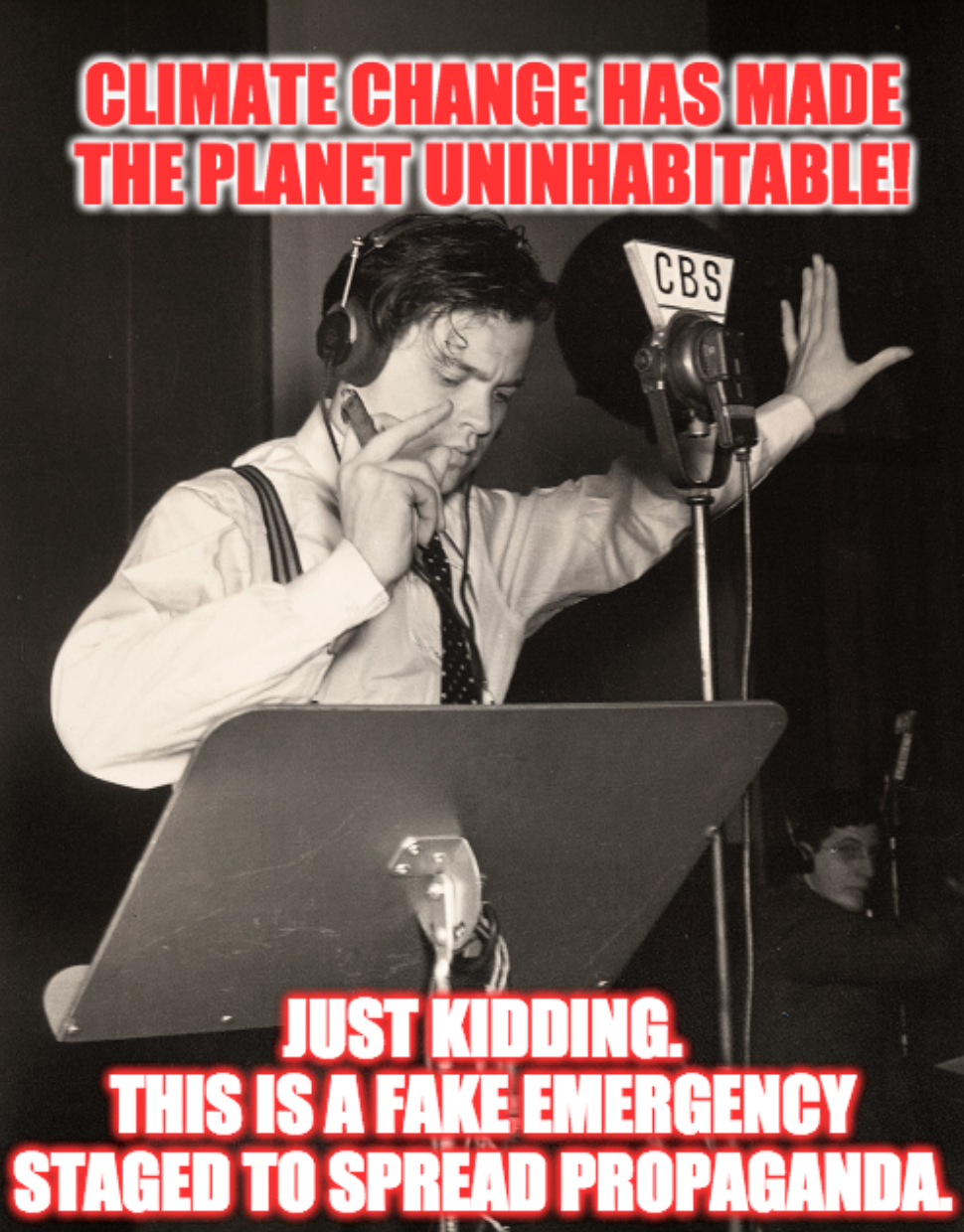
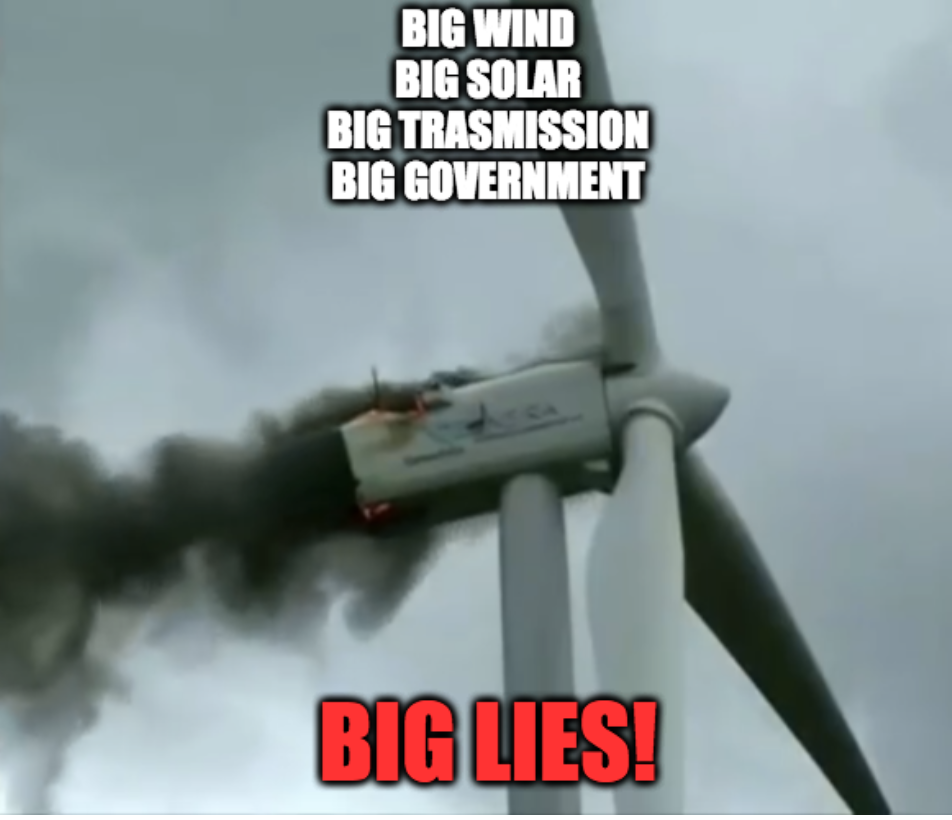
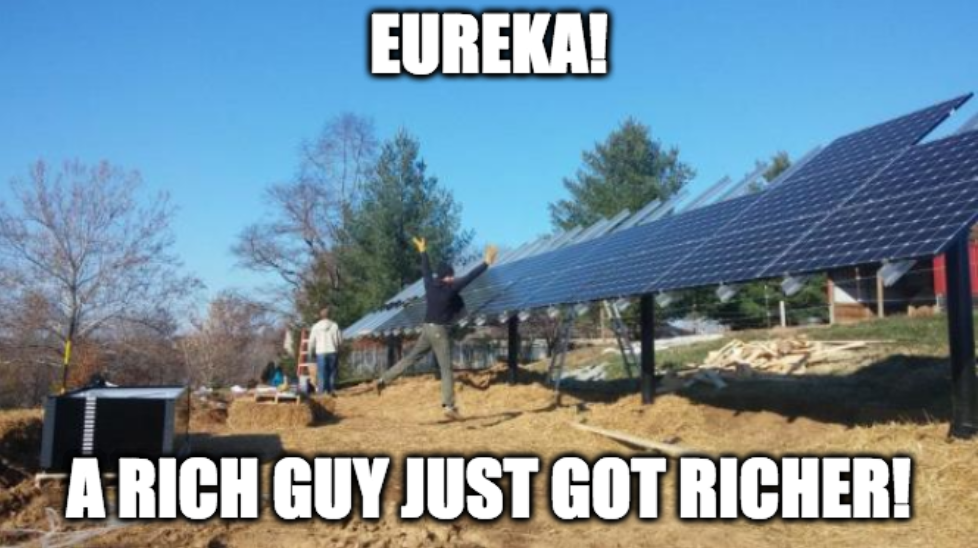
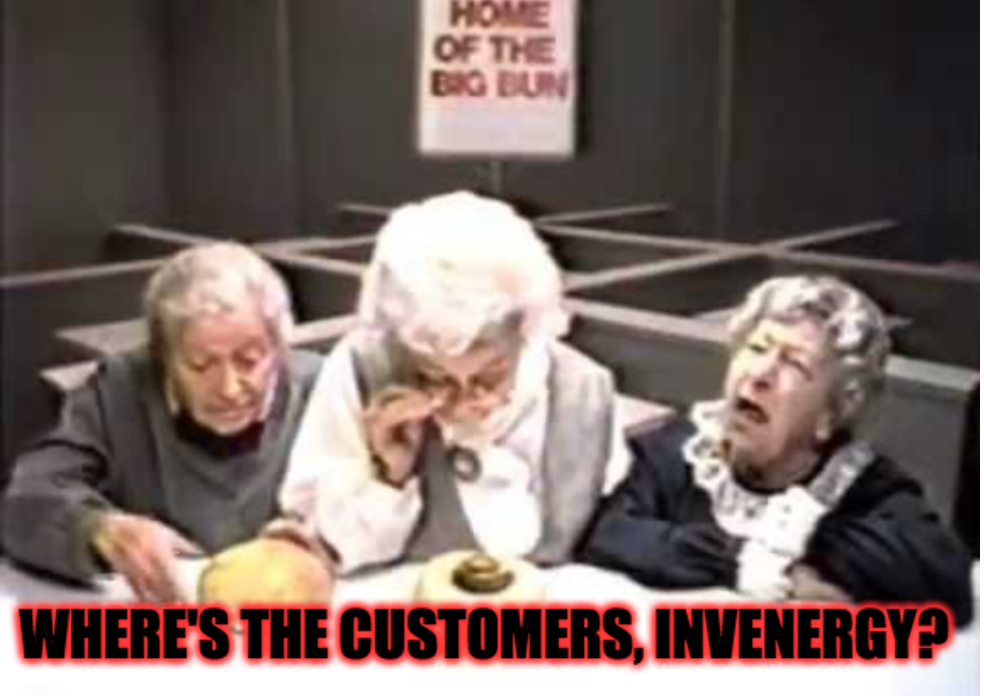
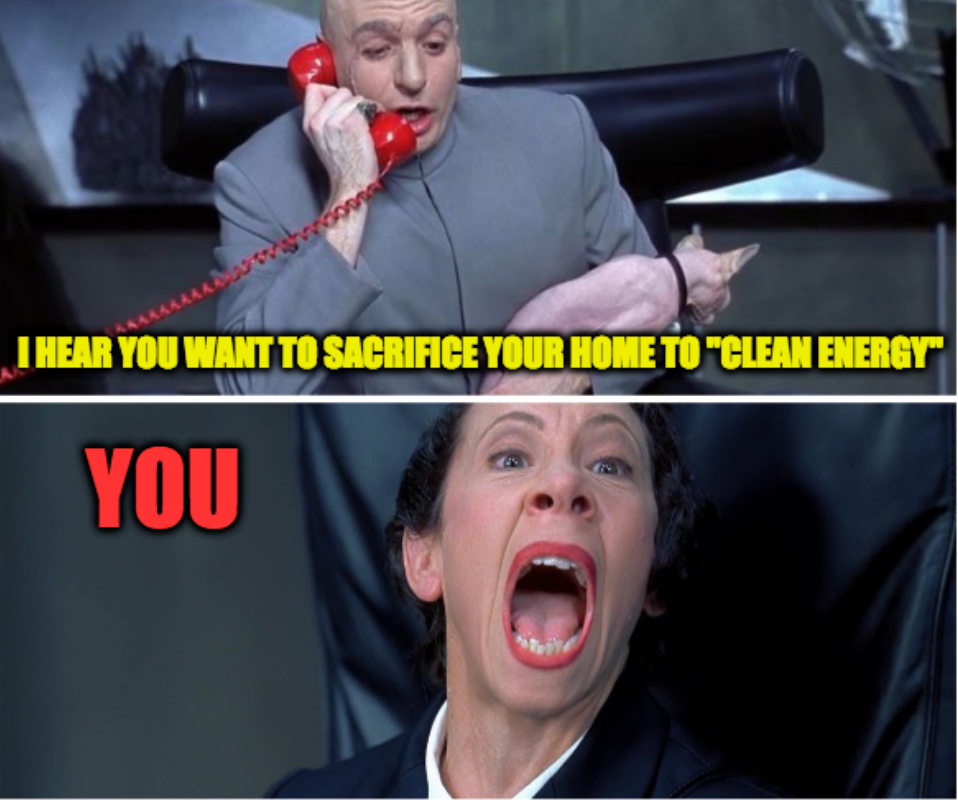
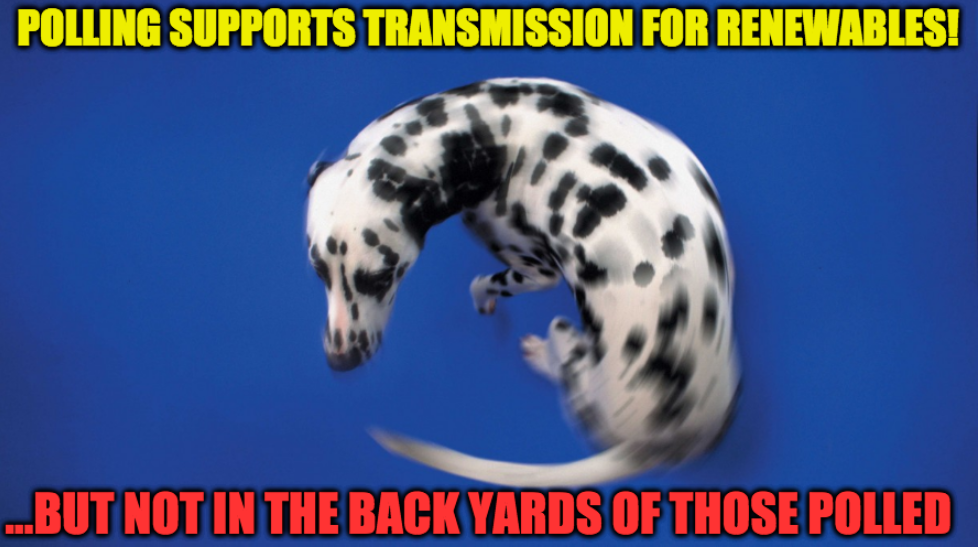
 RSS Feed
RSS Feed